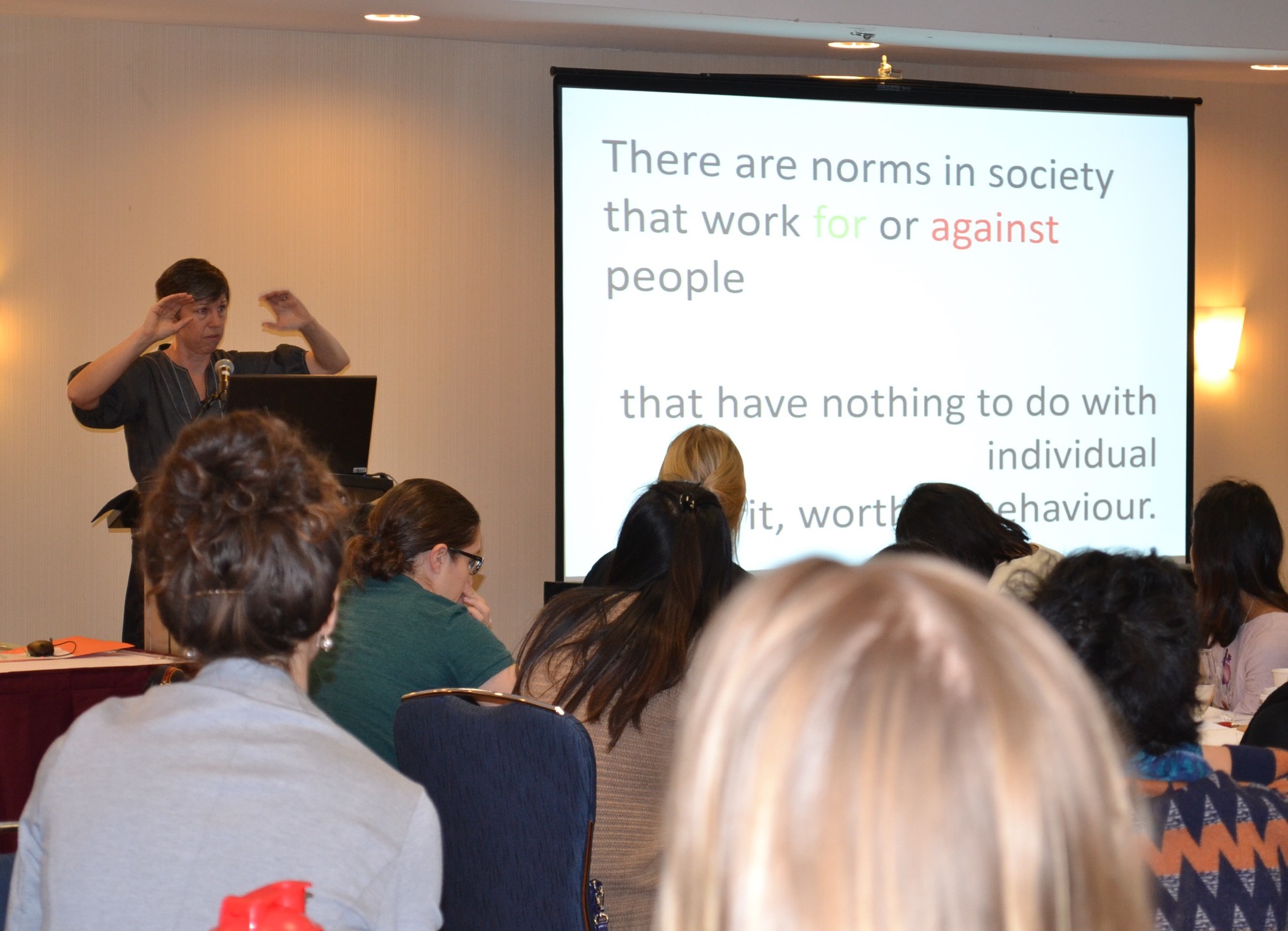A wonderful practice in humility, Stephanie Nixon’s workshop on Allyship challenged us to do just the opposite of what you might expect; she challenged us to unlearn. We were challenged to recognize the intersecting forms of both privilege and oppression, and to confront our own privilege amidst social norms and structures that reinforce persisting inequities. We were reminded also that these norms and structures often obstruct the recognition of privilege by those who benefit most.
‘Inattentional blindness’, or the failure to see unexpected stimulus in plain sight, was a concept that helped illustrate just that. During the workshop we were shown a video of a Harvard University experiment where a number of people are passing a ball, during which time a person in a gorilla costume walks right through the group. We were asked to count the number of ball passes, and being so focused on the task at hand, I completely missed the gorilla. It was a reminder that even with the best of intentions, privilege obstructs our view of inequities that, once we are aware, are impossible to miss.
Importantly, Stephanie reminded us that privilege and oppression are dynamic and complex, and constructed by the intersection of a number of social patterns. Being white, a settler/of settler descent, able-bodied, straight, cis, male, and having some level of wealth, are privileges that those experiencing them may not even realize they have. Conversely, being racialized, Indigenous, disabled, LGBTQ2SIA+, female, and poor, are unmerited disadvantages within our society, which those who experience them almost certainly do know that they have.
Unfortunately, however, we tend to neglect the concept of privilege and instead focus too often on the oppressive factors that make people vulnerable. Consequently, those experiencing privilege are sometimes led to want to ‘fix’, ‘help’, or ‘save’ those in circumstances less advantaged than their own. Offering the analogy of a coin, Stephanie stated that rather than only focusing on those at the bottom of the coin (the most vulnerable) as opposed to those at the top (the most privileged), we need to acknowledge that there is a coin in the first place, which structures and reinforces these inequities. Without being reflexive about the social architecture that creates these patterns of privilege and oppression (aka the coin), we will fail to remedy these inequities. Now, once we do in fact understand this, we need to then do something about it.
Here’s where the unlearning comes in. Stephanie offered that those in positions of privilege need to unlearn the thinking that they ought to ‘help’, ‘save’, or ‘fix’. Instead, they need to reorient their thinking from using their expertise to ‘help’, to instead using the expertise of others to help. This, as Stephanie explained, is what is considered allyship. She offered four principles to guide the practice of allyship, which include:
- Stop trying to ‘help’, no matter how good your intentions, as it is the impact of our actions that matters most.
- Step back and make space for those experiencing oppression to lead, for example by speaking less and listening more.
- Shift power, by offering people valued partnership roles, paid opportunities, and more.
- Be alert to how efforts to practice allyship can backfire, for instance by resisting praise for practicing allyship, and instead recognizing the important work of others.
One key element that Stephanie mentioned, which I believe to be incredibly important to keep in mind, is that allyship is an iterative, active process, and a long journey. I will now be forever challenging myself to be aware of my multiple privileges, to recognize the coin as fundamental to addressing inequities and not merely focus on those who are at the bottom, and to actively and iteratively practice the principles of allyship. I encourage, and challenge, others to do the same.
I would like to acknowledge that this workshop was a collaborative effort by Shaun Cleaver, Alexis Davis, Matthew Hunt, Djenana Jalovcic, Emily Kere, Muriel Mac-Seing, Pulchérie Mukangwije, Stephanie Nixon, Shawna O’Hearn, and Mathieu Simard.

